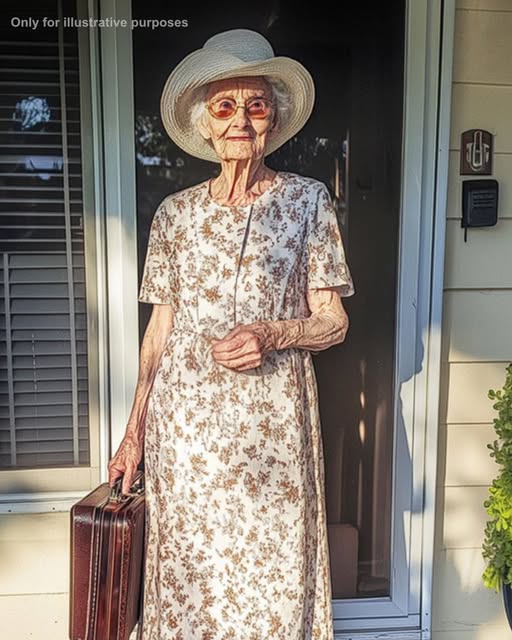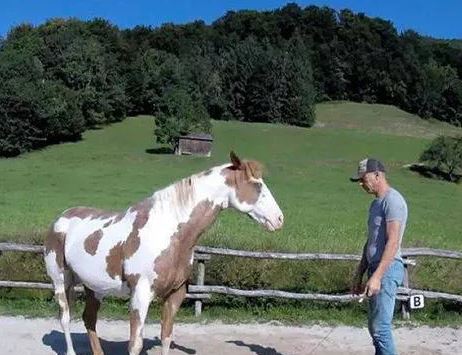It was supposed to be a routine end to my night shift. Just one more pickup. I pulled up, honked once—nothing. My instincts nudged me to move on, but something about the quiet little house held me in place.
I got out and knocked. From inside, a voice, delicate and aged, called out, “Just a minute.” Then came the faint scraping of something heavy being dragged. My fingers curled against my side. I wasn’t sure what I was walking into.
The door creaked open, revealing a tiny woman, barely five feet tall, her frame frail, her age unmistakable. She looked like she’d stepped straight out of a different century—hair pinned just so, a brooch on her cardigan. Inside, her home was cloaked in stillness. Furniture draped in sheets, walls empty, a single box resting by the door.
“Would you carry my bag?” she asked in a voice that barely reached above a whisper. I nodded and offered her my arm. She accepted it as if stepping onto a dance floor, with grace that time hadn’t stolen.
At the cab, she paused. “Would you mind taking the long way through downtown?”
I hesitated. I was tired. I wanted my bed. But something in the way she asked—hopeful, almost pleading—made me nod.
“It’s not the fastest way,” I warned.
“Oh, I don’t mind,” she said, her smile wistful.
She watched me in the rearview mirror. I switched off the meter. “Which way would you like to go?”
For two hours, we meandered through the city. She pointed to buildings that held pieces of her life—the office she’d worked in, the apartment she and her husband once shared, the grand old ballroom where she’d twirled in a satin dress.
The sky was lavender with early light when we finally reached the address she’d given. A quiet, modest hospice.
“How much do I owe you?”
“Nothing.”
“But you have to make a living.”
“There are other passengers.
She studied my face like she was memorizing it. Then, with the gentlest touch, she pulled me into a hug.
“You gave an old woman one last moment of joy,” she said, her voice trembling. “Thank you.”
I held her hand for a second longer than needed, then stepped away as the door shut behind her.
That night, I took no more passengers.
Weeks passed. Then my phone rang. I expected a friend, maybe a wrong number. Instead, a woman with a polished voice introduced herself as Clara from Mendez & Park.
This is regarding Ms. Harriet Thompson,” she said.
My chest tightened.
“Is she alright?”
“I’m sorry,” Clara said gently. “She passed away last week. She made a change to her will before her death. She asked us to contact you.”
The next week, I sat in a modest office as Clara handed me a cream-colored envelope. “She spoke about you. Often. She wanted you to have something.
Inside was a handwritten letter on delicate stationery.
Our ride meant more to me than I can express. You gave me back my memories—let me relive the best moments of my life. For that, I want you to have my most cherished item: a silver locket with my husband’s photo. It has little monetary value but held all the meaning in the world to me. Thank you for your kindness.
–Harriet
Tears threatened. I pressed the envelope to my chest.
Clara smiled. “She hoped you’d keep it. If not, she asked us to donate it to the historical society.
Before I could respond, the door slammed open. A tall man stormed in, followed by a stern woman. His tone was sharp: “I’m Byron—her grandson. Why is he here?”
Clara tried to keep things calm, but they didn’t want to listen. They were outraged. “He’s just a cab driver,” Byron scoffed. “This is ridiculous. We plan to contest this.”
I quietly returned the letter to its envelope. “She didn’t leave me anything of real value. Just a note. And a locket.”
“She was confused,” Byron snapped. “You manipulated her.”
The conversation twisted into accusations. They claimed Harriet was senile. I tried to explain: the ride, the memories, the way she smiled. But it didn’t matter to them.
The case went to court. I was served papers. It was surreal—being dragged into a legal battle over a small, sentimental object.
In court, I stood before the judge and told the truth. Every detail. The quiet drive. Her voice lighting up. The moment I shut off the meter.
Clara testified. So did a hospice worker, who confirmed Harriet was lucid. She’d spoken glowingly about me and had been insistent about the codicil in her will.
After hours of tense deliberation, the judge delivered a decision: Harriet’s wishes would stand. The locket was mine.
Outside, in the crisp autumn air, I opened the locket. Inside was a photo—two young lovers, Harriet and her husband, glowing with joy. I smiled through tears. That tiny gift wasn’t about wealth. It was about legacy, memory, love.
I whispered, “Thank you, Harriet.”
I slipped the locket into my pocket and walked back to my taxi. The city was waking up. A new day beginning.
And I was reminded—sometimes, the smallest kindness can echo into something much greater than we ever expect.



